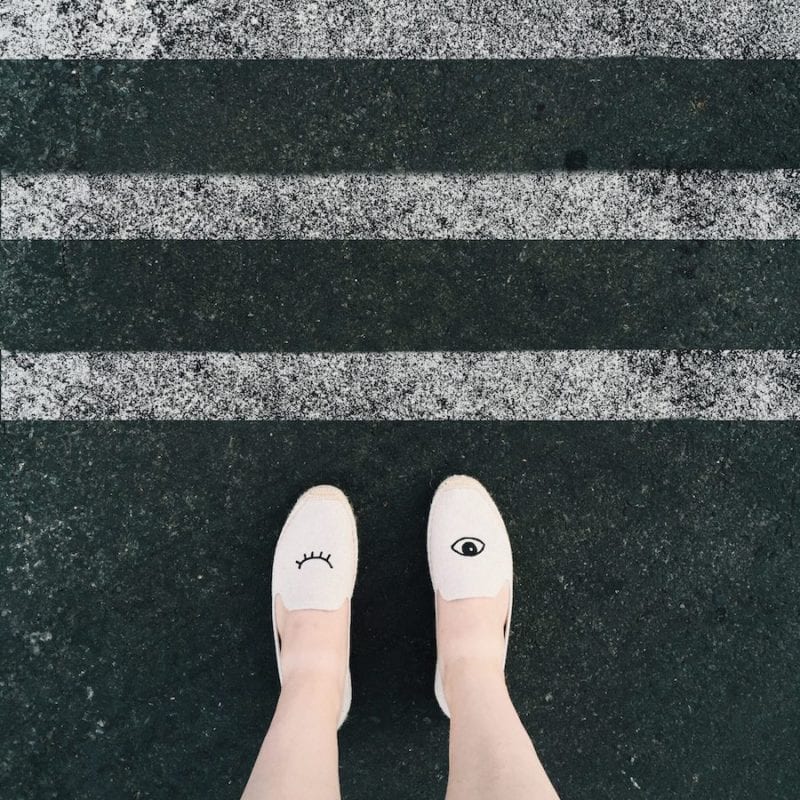Maybe you’ve dreamt about working from home: Flexible hours! Taking calls in pajamas! Finishing a project while dinner cooks in the oven! Then you take a job that offers more freedom, or you forge your own way with a small business. Suddenly, the easy routine of an office job vanishes as you attempt to create your own workplace.
This is uncharted territory. In 1997 only seven percent of the employed population worked from home; today that number tops twenty percent. It’s not only entrepreneurs and small business owners who make their office at home. Employees of corporations are also joining the movement, finding out that their productivity increases in tandem with flexibility. As demand for freelance contractors explodes, artists are leaving office jobs to pursue their craft full-time. And if you work in a creative industry, you likely spend at least a portion of your day working at home (or haunting local coffee shops).
An increasing piece of the workforce is strategizing, creating, and implementing from the comfort of their home. Besides the benefits of convenience and flexibility, home-based employees can parent while they work or piece together projects to do what they love, whether in graphic design, statistics, sales, or photography. Yet not everything about working from home is convenient.
I recently left my full-time position at an office to pursue a graduate degree and freelance writing, which means I do nearly all of my work at a desk in my living room. My first few days of this freedom felt something like panic. What would I do without the collaboration and community of my tight-knit office? How would I respond to self-imposed deadlines? Would I sense when to break and when to power through writer’s block?
Knowing my tendency would be to clean, snack, read blogs, and generally complete any task that wasn’t my assignment, I sought advice from other people whose homes double as their offices. Here are a few bits of wisdom I picked up — if you have other tips, leave a comment below!
Know your tendencies.
Good performance hinges on maximizing your strengths. If you understand your personality — bad habits and all — you’ll be prepared to head off unproductive behavior before it starts. What type of environment helps you thrive? Do you produce your best work in the morning or evening? Do you have unshakable discipline or do you need to set strict boundaries? Knowing your tendencies helps build on your gifts and curbs the temptation to self-distract (ahem: organizing the bathroom to avoid your inbox).
Set the scene.
Most people I’ve asked about working from home talk first about their workspace. There’s a sacred quality to their tone as they describe the home office, studio, or desk where the magic happens. Some friends have converted their spare room into an office. One writer built a studio outside so she could physically hike away from distraction. Even if you’re not so lucky to have an extra room or studio, create a workspace you enjoy. Plants and candles work wonders. The point is to establish a designated work zone, free from interruptions but pleasant enough to spend hours there each day.
If you understand your personality — bad habits and all — you’ll be prepared to head off unproductive behavior before it starts.
Break it up.
Studies tell us we are most productive for 50 to 90 minutes at a time with 10 to 30 minute breaks. These shorter bursts of focus actually increase our output, but only if we pause in between. Depending on your work, different blocks of time may work better for you. Photographers may be able to edit images for several hours before moving on to administrative tasks or heading outside to shoot. One professor told me she writes for one four-hour block every day. Whenever you choose to break, make like Taylor and shake it out. As The Atlantic editor James Hamblin has said, “sitting is the new dying.” Sitting for hours on end is good for nobody’s body or brain, and breaks are most effective when you leave your chair and enjoy some movement.
Feed your brain.
I know a writer who reads a poem before she sits down to work, soaking up its diction and lyrical quality. Memoirist Beth Kephart suggests letting “foreign music spin” as you create. Whatever mind food gets you going, make a habit of filling yourself before sitting down to produce the work. Take a walk outside, listen to a podcast, or flip through a visual journal. You’ll receive the two-fold benefit of being creatively inspired and energized by the good work of others.
Sometimes, the best thing is knowing that you aren’t alone. More women than ever are working from home and learning to navigate this strange world of the modern workplace. If you’re one of them, you’re in good company.
Do you work from home? How do you make it work for you?
Image via Ellie Koleen












7 comments
I love working from home but I am a photographer so I always have to head out for shots.
I really enjoyed this article. I have been an independent jeweler working from home for almost two decades now. I supplement my artist work by selling jewelry and art in a gallery that also sells my work. This is the perfect compliment of jobs and income for me. I enjoy sales, as long as it’s part time, and I enjoy my “fun” creative work as long as every dollar does not depend on it. Finding a balance with these 2 jobs is important and less stressful for me.
As far as bad habits or distractions, they are very real. I have learned to mostly be gentle on myself and if I move slow in the morning, or do other things, even if it is a procrastination tactic, I just work later in the day.. If that’s not possible I will put in more hours the next day. This might not work for all but be gentle on yourself. You’ll find a rhythm you can groove to with time.
I began recently working full-time for myself after being laid off from my fashion job. It is a lot of focusing, organizing your life and setting up schedules or else you waste a lot of time. I am determined to be successful and add freelance gigs to supplement income. We women do this anyway to run our homes, so I keep telling myself, just do the same for you! Good luck to us all.
http://www.pippihepburn.etsy.com
This is so encouraging! Unlike most stay at home jobs where you do office type / computer work I actually converted our garage into a catering bakery and have struggled so much because it’s such a labor intensive job I question if I’m supposed to do that kind of work alone. I work long hours into the night to take care of my toddlers by day and my house becomes a wreck because I’m so exhausted. So I have found the best thing for me was when I started hiring someone to help with house cleaning at least one day a week (since my energy is zapped from standing all day). For someone who enjoys cleaning, it’s a little frustrating giving that up, BUT it was the most affordable thing for me to hire out and not as complicated and expensive as hiring an employee right now as I am just getting this business going! It sounds like a small thing but it made a HUGE difference and well worth the $.
I absolutely loved this post. I just recently started working from home and as much as I have loved the freedom, it is quite the transition. All of these are such great pointers and advice!
I hope you have a wonderful week // https://www.lifeloveandbe.com
I recently started working from home this year after my husband and I moved a few states away from the main office of my company. So far, I’ve been loving it but I have noticed a few struggles. One of them being that I read this post as I sat down to begin my work day, meaning I’m starting work by reading blogs instead of diving into writing that needs to get done. I loved your advice to “know your tendencies”. I tend to do better work in the morning, but I’m so tempted to sit and read blogs and “start slowly”. The struggle is real, but I know this is one of the things I’ve got to get better at this year. Thanks for the great post!
Thank you so much for these encouraging words, Annaelise. Especially as I sit down at my desk in our spare room preparing myself for the week ahead. I have recently begun working from home after a move for my husband to start a creative writing program. Thank you for your honesty and helpful suggestions.